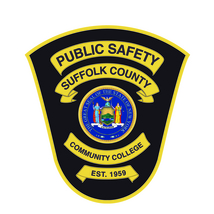General Information
Clery Reporting Authorities & Crime Statistics
Pursuant to the Clery Act, a federal law, the College is required to compile and publish crime statistics in an Annual Security Report. As part of this obligation, members of the college’s community who are considered to be Campus Security Authorities are required to report crimes for inclusion as statistics in the College's Annual Security Report.
The law defines a Campus Security Authority as “An official of an institution who has significant responsibility for student and campus activities, including, but not limited to, student housing, student discipline and campus judicial proceedings.”
- Members of the Office of Public Safety
- Title IX coordinators
- Office of the Dean of Students
- Athletics team coaches
- Faculty and staff advisors to student organizations
- Study abroad faculty and staff
Campus Security Authorities may also be identified by job function; that is any employee who, by virtue of their job function, has significant responsibility for assisting students or campus activities. Examples would be student advisors or formal or informal student mentors.
Campus Security Authorities should not investigate crimes or attempt to determine whether in fact a crime occurred. Rather, a Campus Security Authority’s obligation is to simply report the information that s/he has as soon as possible.
The College is required to disclose statistics for the following offenses that occur on campus, or in non-campus buildings or property owned or controlled by the College, and public property within or immediately adjacent to campus.
Criminal Offense
- Criminal Homicide: murder and non-negligent manslaughter
- Criminal Homicide: negligent manslaughter
- Sexual Assault: rape, fondling, statutory rape, and incest
- Robbery
- Aggravated Assault
- Burglary
- Motor Vehicle Theft
- Arson
Violation of Law (not College policies or regulations)
- Liquor Law Violation (does not apply to public intoxication or DUI)
- Drug Law Violation
- Weapon Law Violation
Hate Crime
- Larceny-Theft
- Simple Assault
- Intimidation
- Destruction/Damages/Vandalism of Property
- Criminal Offense (as described above)
Other Crime
- Domestic Violence
- Dating Violence
- Stalking Incidents
On campus — Any Suffolk County Community College Campus or Downtown Center.
On public property — All public property, including thoroughfares, streets, sidewalks, and parking facilities, that is within the campus, or immediately adjacent to and accessible from the campus.
On non-campus property — Any building or property owned or controlled by a student organization that is officially recognized by the institution; or any building or property owned or controlled by an institution that is used in direct support of, or in relation to, the institution’s educational purposes, is frequently used by students, and is not within the same reasonably contiguous geographic area of the institution.

